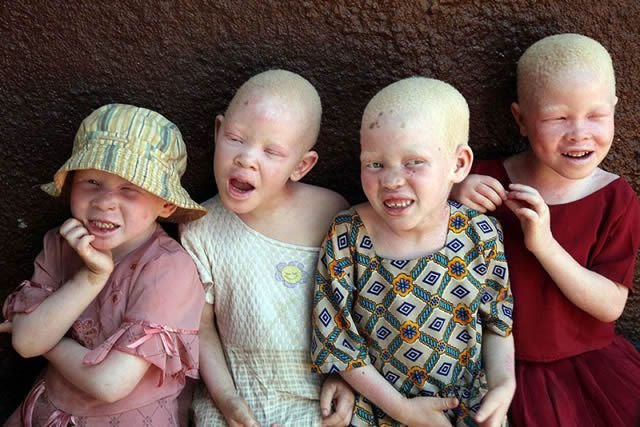Albinism is one of the least understood conditions across the globe. People with albinism encounter a number of problems because of a lack of understanding of albinism.
Albinism is a rare, non-contagious and genetically inherited condition which occurs worldwide irrespective of ethnicity or gender. It most commonly results in the lack of melanin pigment in the hair, skin and eyes (oculocutaneous albinism).
There have been various human rights violations against persons with albinism, owing to enduring and misleading misconceptions, and superstitious belief system on albinism. People with albinism have been victims of harassment, discrimination, torment, bully, and murder in some parts of Africa.
However, there is limited knowledge and facts on albinism, with the need to continue educating people on albinism, and to demystify and debunk deep-seated misconceptions and superstitious beliefs on the condition.
We look at 7 common myths surrounding albinism, and challenge these misconceptions
1. Albinism is a curse/bad omen or a punishment: There is a common belief that albinism is an ancestral curse in a family or clan to atone for past wrongs. In fact, albinism is a hereditary genetic condition. Many people carry the recessive gene and the condition is not a curse. This myth has been spread by witchdoctors who pay huge amounts for body parts, which they falsely claim bring good luck, success, wealth and power.
2. The myth that a sexual intercourse with people with albinism is a cure for HIV/AIDS: The false belief has resulted in the rape of women and girls with albinism in parts of Africa. It should be noted that people with albinism do not possess any special powers or healing powers. Any form of ritual rape or unprotected sex with women/girls with albinism can only lead to the further spread of HIV/AIDS or any other Sexually Transmitted Disease.
3. Albinism is contagious: People with albinism have been ignored and discriminated against on the sole basis of the misconception that the condition is a contagious sickness. On the contrary, albinism is non-contagious, but it is a genetically inherited condition common across the world regardless of ethnicity or gender.
4. People with albinism (children in particular) bring bad luck: It is a fallacy of hasty generalization to infer that albinism brings sickness or even death. The myth often leads to discrimination, and hatred towards people with albinism.
5. Women are often blamed for giving birth to children with albinism: There have been cases women get harassed, divorced by their husbands and ignored by families after giving birth to children with albinism. The women are sometimes accused of witchcraft. The misconception stems from lack of understanding of albinism and genetics. There is a lack of awareness that the skin condition is genetically transmissible from parents down to their children.
6. People with albinism cannot have normal pigmented children: People with albinism can have melanin-pigmented children, provided the partner is not a carrier of the same recessive gene for albinism (autosomal recessive inheritance pattern).
7. People with albinism are sterile. This is another unfounded belief: Albinism does not affect fertility, and people with albinism are fertile and can have children like other people.

